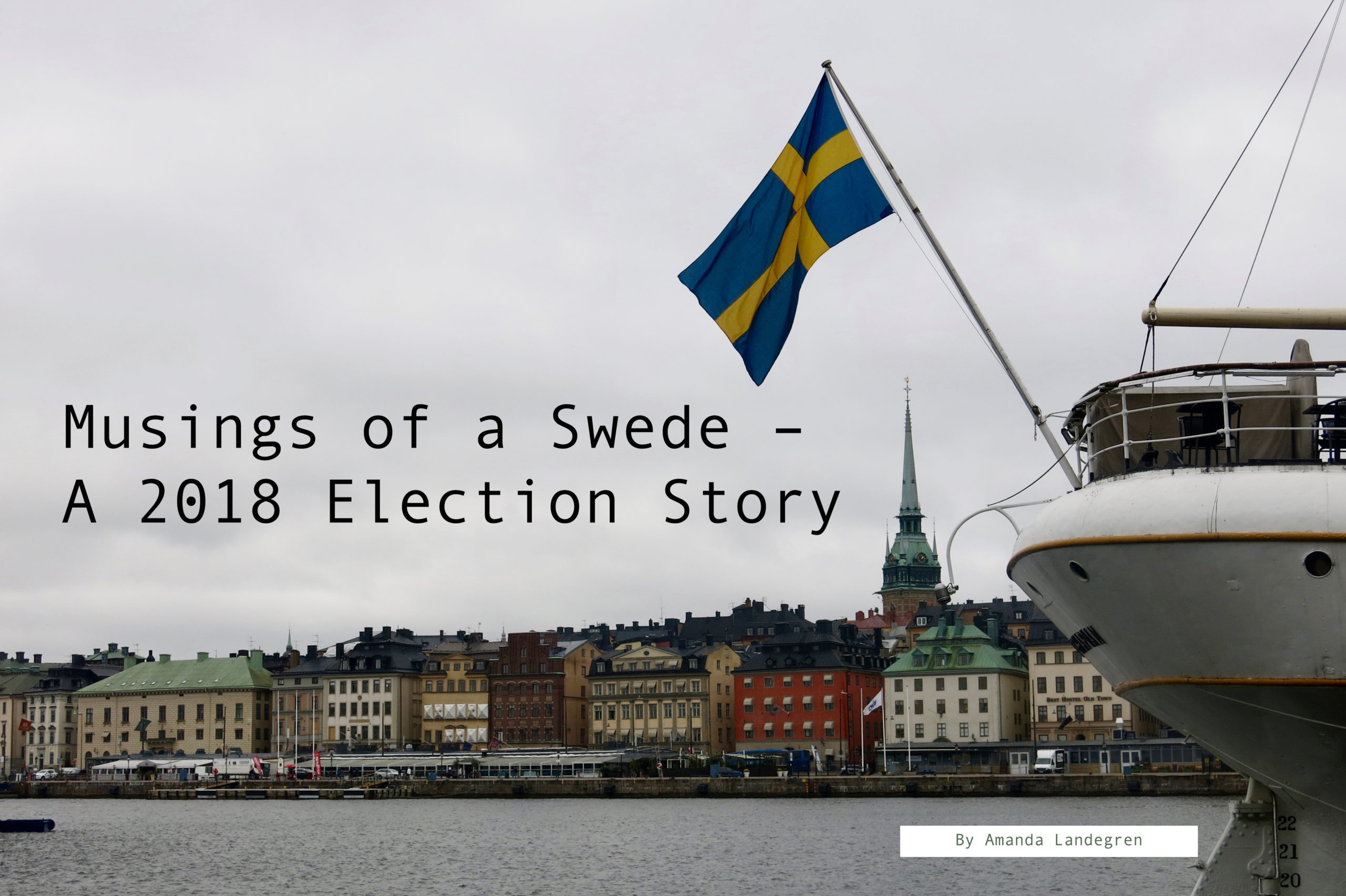[Written by Amanda Landegren]
[Image By Aike Jansen]
I never used to be very interested in politics. I never engaged with what I considered boring and aged discussions between people, with the elusiveness of straight and honest answers ultimately becoming exhausting. It wasn’t until I had to vote earlier this year that these questions suddenly burst into importance and I actively took a step towards being able to make an informed decision. I have always had values and opinions, but never considered where these really caused me to land politically. Until this year. What surprised me watching debates and following politicians on twitter, was firstly the lack of basic respect; also the dishearteningly alienating and polarising political climate. However, the question that I find immensely interesting to ask is whether this polarisation is a true representation of the reality, or if it is a simplified image offered to us by propaganda and by the media?
We have seven parties in the Swedish parliament and none directly correspond to parties in other countries. I think that’s where one of the problems starts. Leading up to the election in September we had witnessed major divisive events take place in both the U.S and the U.K. From an outsider’s simplified point of view (perhaps I’m part of the problem here), it seems like Trump’s presidency has done little but amplify the polarisation between Democratic/Republican, whilst Brexit has done a similar thing to the conflict between Leave/Remain. When the media then transports this system of two strongly opposed sides and awkwardly compares them to the Swedish political landscape, it paints the picture of two rigidly antagonistic factions – not seven parties with distinctly different politics and issues. The language, the proposed actions and the calculated results all seem to become simplified in order to force people into either one or the other camp. The ‘in between’ is either irrelevant or nonexistent.
The media today plays a huge role in our lives, whether we like it or not, both through social media platforms such as Twitter, Facebook and Instagram but also through traditional mediums such as newspapers more or less biased to one side. The fact that we so often isolate ourselves within an echo chamber of opinions similar to our own only seem to cultivate ignorance and misunderstandings. The refusal to acknowledge opposing ideas breeds antagonism rather than promoting respectful disagreement. This might be one of the reasons why the most polarising voices are the ones heard; the loudest, most simplified shouts, tend to drown out the more complex and nuanced ones. Social media has also become an easy way for people – and bots – to spread false claims and misinformation.
Away from the influence of the media, the SD, our most right-wing party in parliament, has had an immense impact on Swedish politics in the last ten years. I think we were all a bit shocked by their rapid growth and by the support they received in the 2014 election, considering that their dehumanising and anti-immigration policies were pretty much all they promoted. Consequently, this year’s campaigning has caused very open antagonism where you were either ‘with them’ or ‘against them’; people asking to be removed from your various friend list if you voted for the SD. As their key issues all concern human worth – limiting immigration, restricting abortion, hindering women in the workplace – it’s hard not to connect those political values to a personal perception of other people. And that leads us right back to the name-calling, the personal attacks and the shift from factual arguments towards emotional ones. Even though there are seven parties, the whole campaign mostly came down to the other parties trying to find their own place seemingly relative to the one party on the far right.
I can offer no definitive answers and this is no more than a reflection. I’m now more interested in politics, more informed and more concerned. Evidently, after the election, politicians still refuse to give straight answers, and the debate feels more polarised than ever. Opening up for a wider debate where language isn’t monotonous goes against what most of the media and political propaganda urge us to, but I think it’s one of the only ways to find plurality instead of demarcation.

